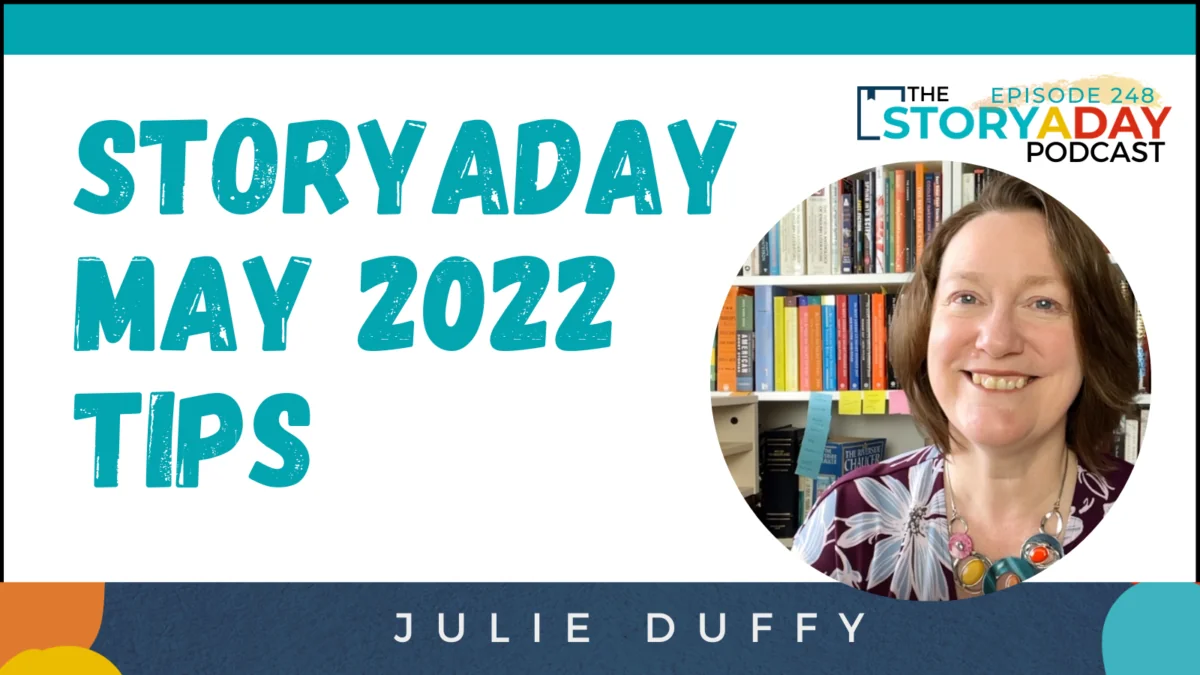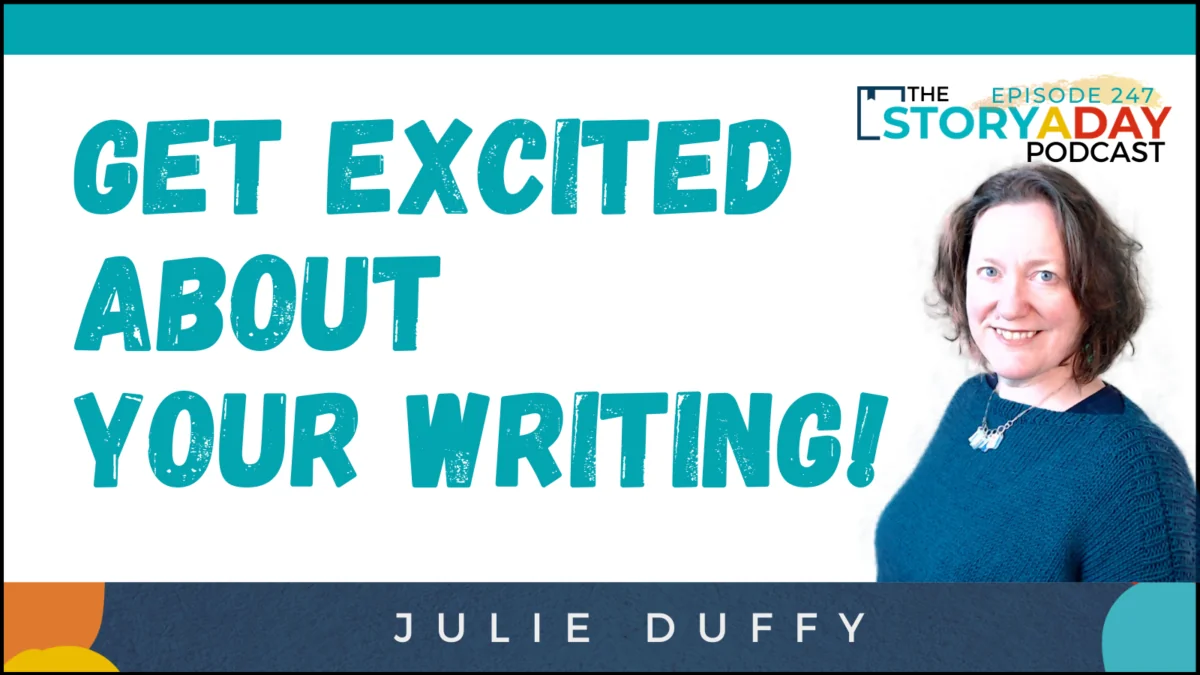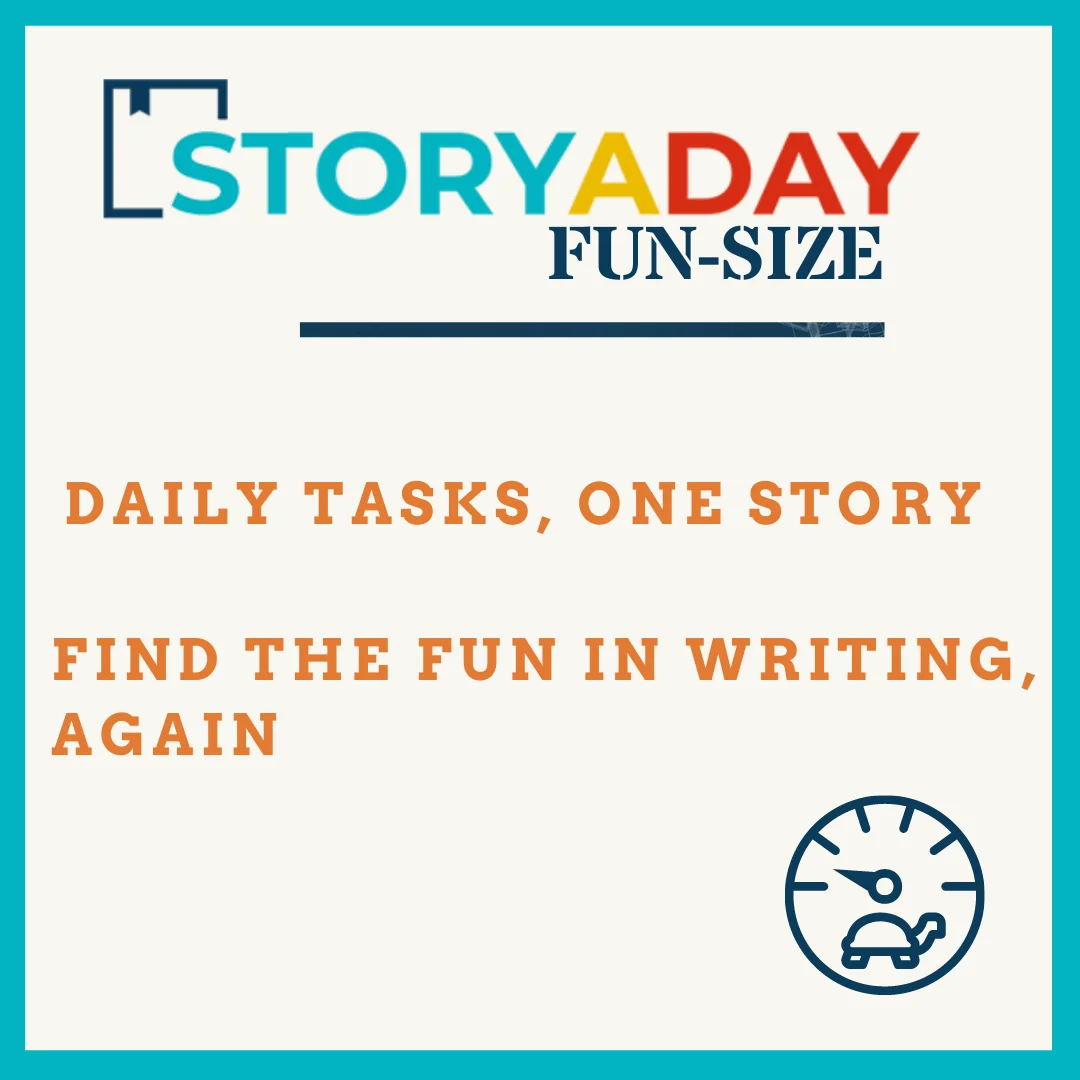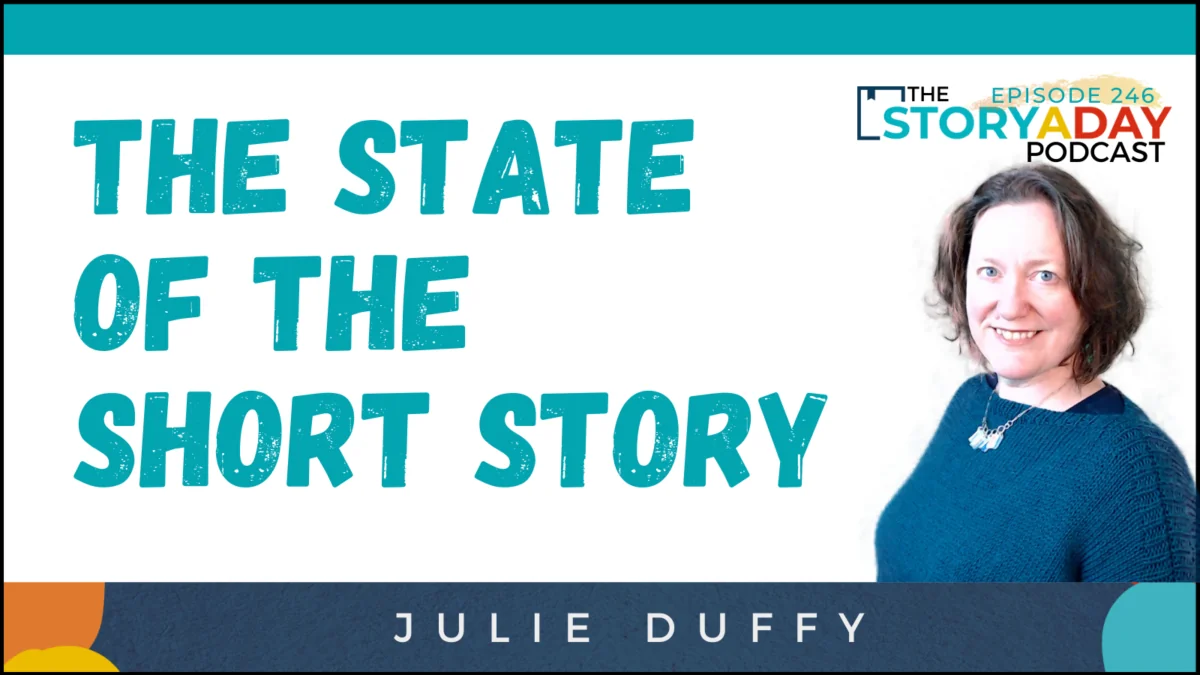Whether you’re easing back into a writing routine, need a break from your magnum opus, or just want to inject a little fun into your day…
YOU ARE INVITED TO SIGN UP FOR THE STORYADAY MAY CHALLENGE
New For 2022: 2 Ways To Play
This year, for the first time, I’ve created a Fun-Size StoryADay challenge—one month, one story—to ease you (back) into a daily writing practice that fits your life.
Your Perfect Writing Day
Imagine opening your email each morning of May and finding an encouraging note, writing prompt or tiny task that will start you off on the right writing foot.
No guilt, just an invitation to let your inner writer come out and play.
What’s In the Fun-Size Challenge?
Each day you’ll receive a tiny task to lead you through the process of writing one story during the month
- Week 1 – Ideas and preparation
- Week 2 – Developing your ideas and beginning to write
- Week 3 – Working through the middle and ending the story well
- Week 4 – Tidying up and planning ahead
PLUS anyone who signs up will have the option to enter the ‘review lottery’ and may get feedback on their writing, live on a group call.
By the end of the month you will have a draft of a story that didn’t exist 31 days before.
Perhaps you, like StoryADay writers Gabrielle, Marta, Kim, and Lex, will have created the draft that gets you your first, second or fiftieth fiction publication.
Or maybe, like Laura, or E. Rankin, you’ll make your first paid sale.
And how great would it be if, at the end of May, you are like StoryADay writer Michele who finally created “that daily writing habit”, or Robin who says “I have become a real writer”? Or Jeff, who says “every day, I have that desire to put in a little time with my writing and I’m confident that will always be there for me, now.”
Even if you need to take a day or two off, the tasks are manageable enough that you’ll easily be able to keep up. Importantly, you’ll keep making progress towards your goals, throughout the month.
(And don’t worry, for all you hard-core challenge fans, the classic 31 days, 31 prompts, start-and-finish-a-story-every-day version is still an option, with new writing prompts every day, and a lively community to keep you going!)
If you’ve been looking for a way to break through your blocks, fight the fear that comes with perfectionism and high expectations, and simply have some fun with your writing again, join us this May for the free StoryADay May challenge.






